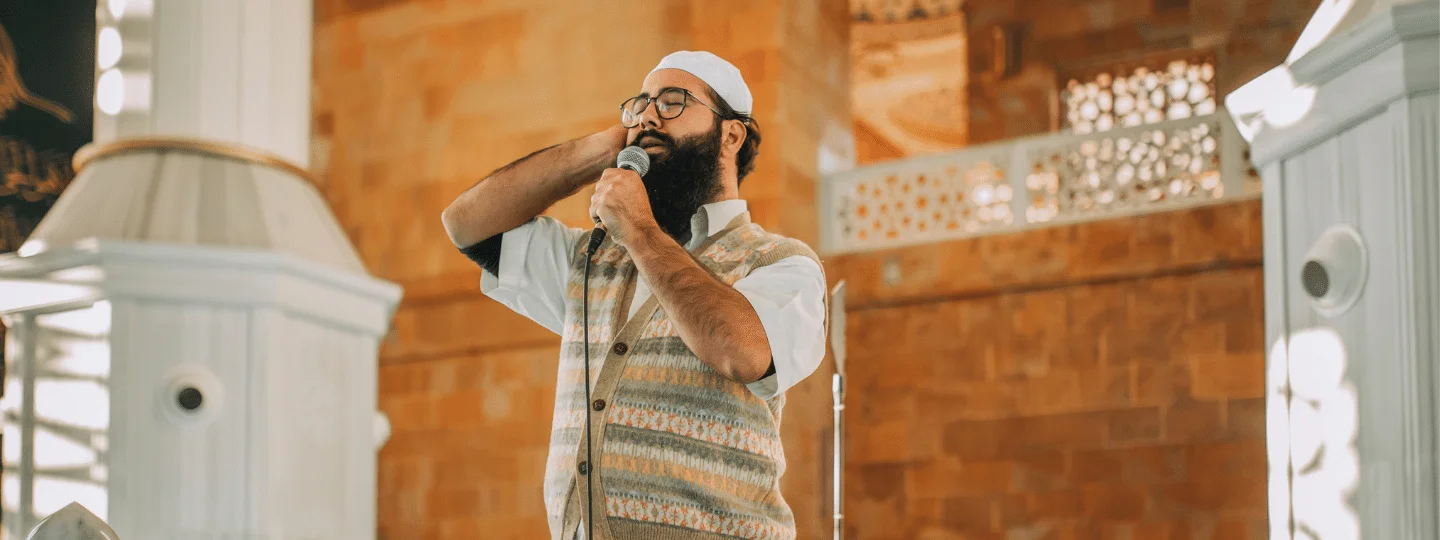Was kissing the thumbs during the Adhan practiced by Sayidina Abu Bakr?
Quran
Hadith
Islamic Text
The narration stating that Sayidina Abu Bakr (May Allah Most High be pleased with him) used to kiss his thumbs during the Adhan is not sound.
Many scholars were clear on the fact that there is no Marfoo (Prophetic Hadith) encouraging the kissing of the thumbs during Adhan.
ولا يصح في المرفوع من كل هذا شيء. (المقاصد الحسنة في بيان كثير من الأحاديث المشتهرة على الألسنة)
There is nothing authentic from the Prophet ﷺ (Marfoo) regarding this issue. (Imam al-Sakhaawi, al-Maqaasid al-Hasanah).
As for the narration establishing it as a practice of Sayidina Abu Bakr, numerous scholars said it is not sound.
ذَكَرَهُ الدَّيْلَمِيُّ فِي الْفِرْدَوْسِ مِنْ حَدِيثِ أَبِي بَكْرٍ الصِّدِّيقِ أَنَّهُ لَمَّا سَمِعَ قول المؤذن أشهد أن محمد رَسُولُ اللَّه قَالَ هَذَا، وَقَبَّلَ بَاطِنَ الأُنْمُلَتَيْنِ السَّبَّابَتَيْنِ وَمَسَحَ عَيْنَيْهِ، فَقَالَ صَلَّى اللَّهُ عَلَيْهِ وَسَلَّمَ: مَنْ فَعَلَ مِثْلَ مَا فَعَلَ خَلِيلِي فَقَدْ حَلَّتْ عَلَيْهِ شَفَاعَتِي، ولا يصح. (المقاصد الحسنة في بيان كثير من الأحاديث المشتهرة على الألسنة).
It was mentioned by al-Daylami in al-Firdows regarding (Sayidina) Abu Bakr, that he heard the Mu’adhin saying, ‘I bear witness that Muhammad is the Messenger of Allah, he said this and kissed the outside of the top of the index fingers and wiped his eyes (with them). So, the Messenger of Allah ﷺ said, ‘Whoever does the like of what my friend has done, then my intercession will be secured for him.’ This is not authentic. (Imam al-Sakhaawi, al-Maqaasid al-Hasanah).
مسح العينين بباطن أنملتي السبابتين بعد تقبيلهما عند سماع قول المؤذن “أشهد أن محمدًا رسول الله” مع قوله أشهد أن محمد عبده ورسوله، رضيت بالله ربًا وبالإسلام دينًا ومحمد صلى الله عليه وسلم نبيًا. رواه الديلمي عن أبي بكر: “أنه لما سمع قول المؤذن “أشهد أن محمدًا رسول الله؛ قاله، وقبل باطن الأنملتين السبابتين ومسح عينيه فقال -صلى الله عليه وسلم- من فعل فعل خليلي؛ فقد حلت له شفاعتي”. قال في “المقاصد”: ولا يصح، وقال القاري: وإذا ثبت رفعه إلى الصديق فيكفي العمل به لقوله -عليه الصلاة والسلام- عليكم بسنتي وسنة الخلفاء الراشدين من بعدي، وقيل لا يفعل، ولا ينهى. (كشف الخفاء ومزيل الإلباس)
He wiped his eyes with the outside of the top of the index fingers after kissing them upon hearing, I bear witness that Muhmmad is the Messenger of Allah. He (May Allah Most High be pleased with him) done this whilst saying, ‘I bear witness that Muhmmad is his slave and messenger. I am pleased with Allah as my Lord, Islam as my religion, and Muhammad ﷺ my prophet.
It was mentioned by al-Daylami in al-Firdows regarding (Sayidina) Abu Bakr, that he heard the Mu’adhin saying, ‘I bear witness that Muhammad is the Messenger of Allah, so he said it and kissed the outside of the top of the index fingers and wiped his eyes (with them). So (the Messenger of Allah) peace be upon him said, ‘Whoever does the like of what my friend has done, then my intercession will be secured for him.’ He (Imam al-Sakhaawi,) said in al-Maqaasid, ‘This is not authentic.’ (Imam Ali) al-Qari said, if it is established to be a statement of al-Siddique (Sayidina Abu Bakr), then it is sufficient (to establish the permissibility of) acting upon it. Due to his (the Prophet ﷺ) saying, ‘Hold fast to my Sunnah and the Sunnah of the rightly guided Khulafaa after me.’ It has been said that this should not be done, and nor should one be prohibited from it. (Imam al-Ajlooni, Kashf al-Khafaa).
After making the above statement, Imam Ali al-Qari added the following:
وَغَرَابَتْهُ لَا تَخْفَى عَلَى ذَوِي النُّهَى. (الموضوعات الكبرى).
The strangeness of this is not hidden from people of understanding. (Imam Ali al-Qari, al-Mowdo’aat al-Kubrah).
Despite these statements, numerous Shafi scholars did encourage the act of kissing the thumbs during the Adhan. They may have other evidence to support this action. Some Hanafi scholars did mention it too. Imam Ibn Abideen did not reject the practice. However, he did narrate the fact that there is no Prophetic hadith supporting this practice:
وَفِي كِتَابِ الْفِرْدَوْسِ «مَنْ قَبَّلَ ظُفْرَيْ إبْهَامِهِ عِنْدَ سَمَاعِ أَشْهَدُ أَنَّ مُحَمَّدًا رَسُولُ اللَّهِ فِي الْأَذَانِ أَنَا قَائِدُهُ وَمُدْخِلُهُ فِي صُفُوفِ الْجَنَّةِ» وَتَمَامُهُ فِي حَوَاشِي الْبَحْرِ لِلرَّمْلِيِّ عَنْ الْمَقَاصِدِ الْحَسَنَةِ لِلسَّخَاوِيِّ، وَذَكَرَ ذَلِكَ الْجِرَاحِيُّ وَأَطَالَ، ثُمَّ قَالَ: وَلَمْ يَصِحَّ فِي الْمَرْفُوعِ مِنْ كُلِّ هَذَا شَيْءٌ. (رد المحتار على الدر المختار)
In al-Firdaus (it is narrated): Whoever kisses the nails of his thumbs when hearing, I bear witness that Muhammad is the Messenger of Allah, during the Adhan then I will be his guide and enter him into the rows of Jannah (Paradise). The details can be found in ‘Hawashi al-Bahr’ by al-Ramli from al-Maqaasid al-Hasanah of Imam al-Sakhaawi. It was also mentioned by al-Jirahi in detail and he said: There is nothing authentic from the Prophet ﷺ (Marfoo) regarding this issue. (Imam Ibn Abideen, Radd al-Muhtaar).
Therefore, people who practice this do have Nusoos (texts) from Fiqh scholars to support them. However, they should be careful not to quote anything from the holy Prophet ﷺ or the Sahabah (May Allah Most High be pleased with them) without confirming authenticity.
Many people rush to quote evidence for their practices without checking how authentic it is. This is a grave error and leads to widespread misguidance. In my answer I am not claiming that this action has no evidence. Rather I have not seen any evidence to support this action.
The onus is upon those who practice it to provide evidence. When doing so they must confirm authenticity. This is done by first establishing a narration to an authentic, original book of Hadith. It is incorrect to reference to secondary or tertiary books. Rather one must reference to original books with complete chains of narration. Thereafter, one must confirm the authenticity of the particular chain that has been established.
And Allah Most High Knows Best.
– Answered by Shaykh Noorud-deen Rashid (02.06.2022)
See also:
See also (video):




